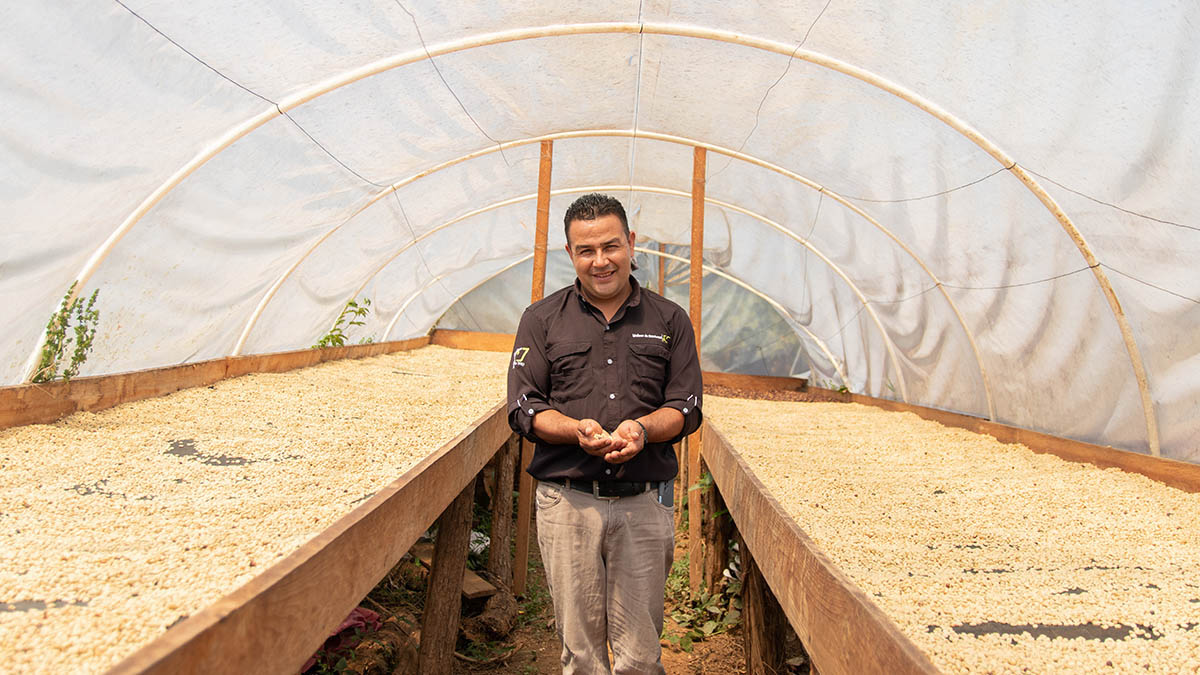Solidaridad is committed to supporting coffee smallholders on their path towards sustainability and compliance with new market requirements.
In 2023, the European Parliament approved the EU Deforestation Regulation (EUDR) that regulates the marketing and export of raw materials and products such as coffee. Under the new rules, such agricultural products can only enter the EU market if they are:
- From land that has not been deforested or degraded as of December 31, 2020.
- Produced in accordance with the relevant environmental, social, and labor laws of the country of origin.
- Traded under a due diligence statement, including traceability or segregation controls.
Although enforcement of the EUDR is postponed with one year, progress made by producers in Honduras has strengthened their position in the market and set them on a good path for when the regulation takes effect. In this context, Solidaridad is working with the Honduran coffee sector to ensure compliance and overall sustainability across five workstreams:
Implementation of agroforestry systems
Coffee smallholders are vulnerable to the effects of climate change. Solidaridad is committed to policies and actions that support climate change mitigation efforts, and at the same time advance compliance with the new EU regulations.
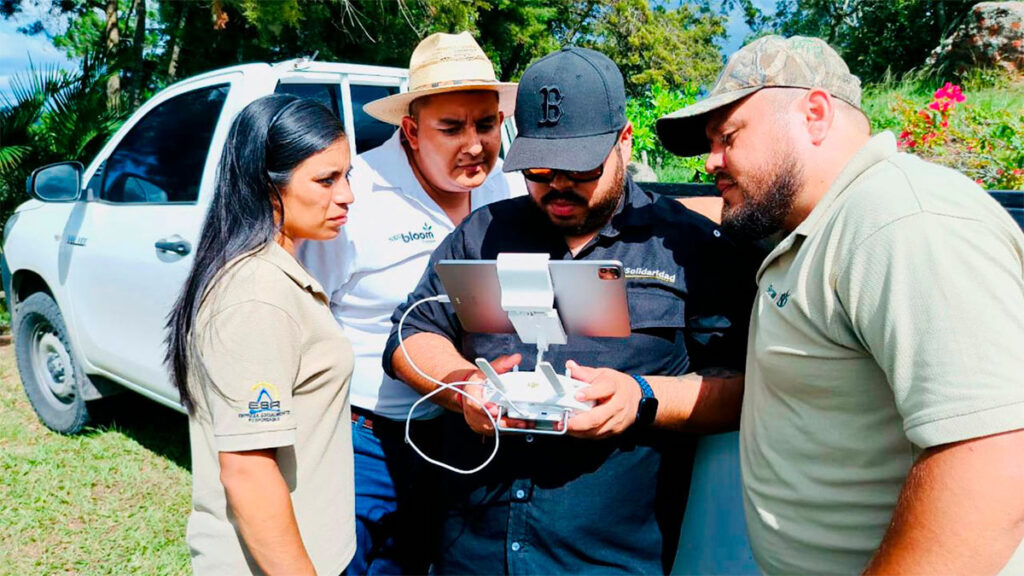
In response to climate change, the coffee industry can benefit significantly by adopting strategies that not only reduce its emissions, but also boost sustainability in its supply chains. Agroforestry is chief among them. In 2023, Solidaridad signed agreements to support implementation of agroforestry systems as a tool to fight climate change in the coffee sector. Agroforestry is an agricultural system where trees and shrubs are integrated with crops, like coffee. The practices support healthier soil, lower input costs, and a healthier ecosystem.
Besides the EUDR, new regulations offer a unique opportunity to link farmers with voluntary carbon markets via sustainable practices in coffee production. Solidaridad is currently implementing a strategic plan to provide Honduran smallholders with access to voluntary carbon markets through the Acorn platform.
National gender policy is a first in the coffee sector
In Honduras, Solidaridad has made significant efforts to promote the implementation of the nation’s gender policy in the coffee sector. This work has included dialogues with key actors, like coffee institutions, women’s organizations, cooperatives and exporters.
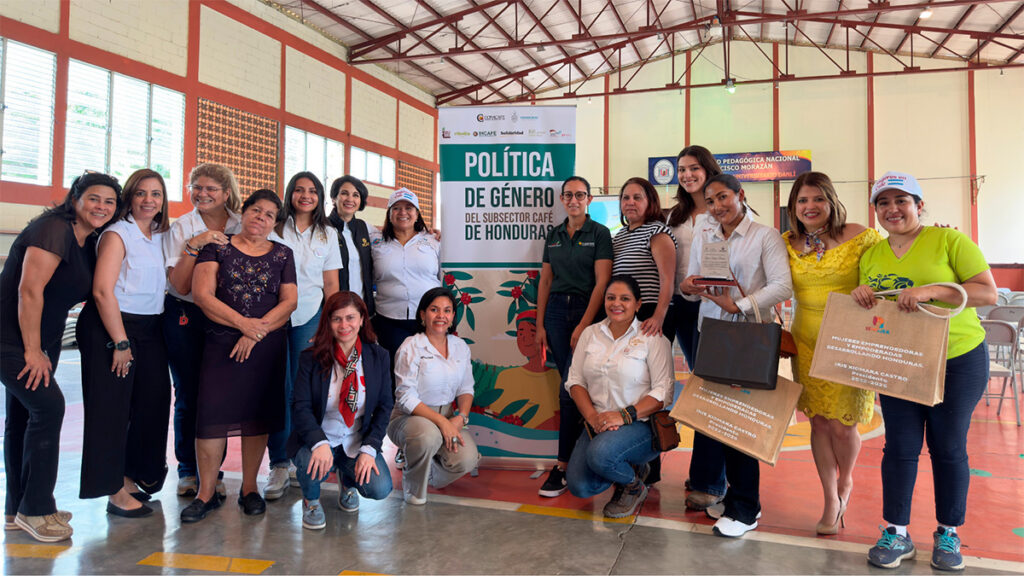
To this end, at the request of the smallholders, a gender sensitization workshop was held at the Te Van a Conocer Compa coffee fair. The seminar was aimed at young coffee leaders, and stressed the impact of strengthening the role of gender committees in Las Capucas, a producer organization.
The workshop emphasized the importance of equitable access to resources for women smallholders, the promotion of local alliances, and the strengthening of women’s leadership to promote gender equity in the coffee sector.
Land titles and scholarships for young people
Together in partnership with our allies, the Honduran Association of Coffee Producers (AHPROCAFE) and the Honduran Coffee Institute (IHCAFE), Solidaridad managed and delivered more than 300 land titles nationwide.
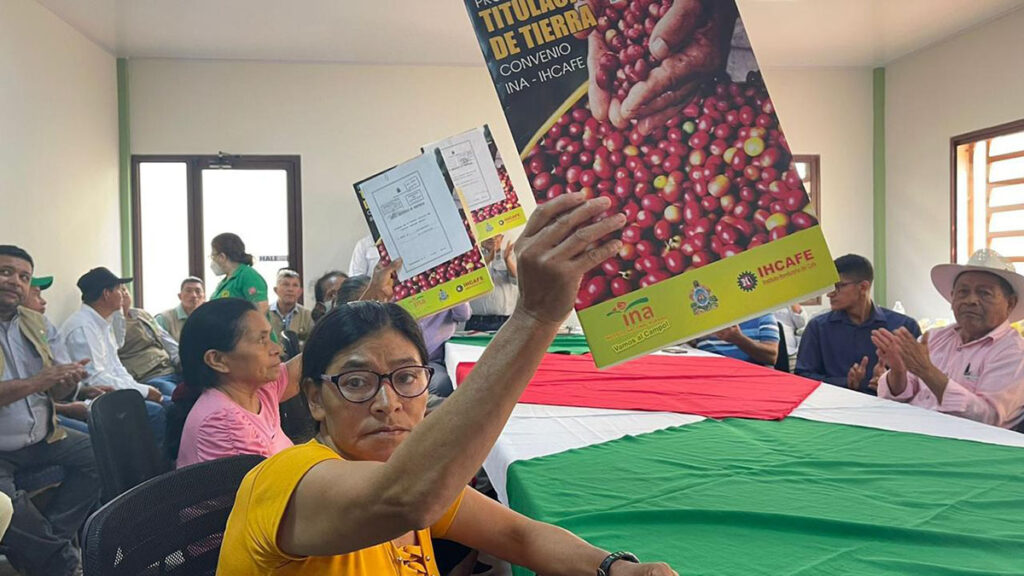
This work with land titles is a great step forward, especially for Honduran women coffee smallholders who often face systemic barriers based on gender. Land titling facilitates smallholders’ access to credit with the land as collateral, which can lead to increased agricultural productivity and improved smallholder livelihoods.
The partnership also began to provide scholarships to the children of coffee growers so that they could specialize in coffee growing and processing. This programme supports generational change in the coffee sector. It not only awakens younger generations’ interest in coffee growing, but also transfers new knowledge, technological advances, and techniques to enhance the resilience of these new generations.
Generating genuine traceability
Solidaridad’s RECLAIM Sustainability! programme works for a genuine transformation that benefits smallholders and workers at the beginning of the value chains.
Traceability in the coffee value chain is key to this transformation. Solidaridad in Honduras works for transparency in the value chain, from origin to destination, which improves the possibility for access to new markets. Four fully traceable coffee containers from 800 smallholders have already been exported with the use of Fairfood’s Trace tool and blockchain technology.
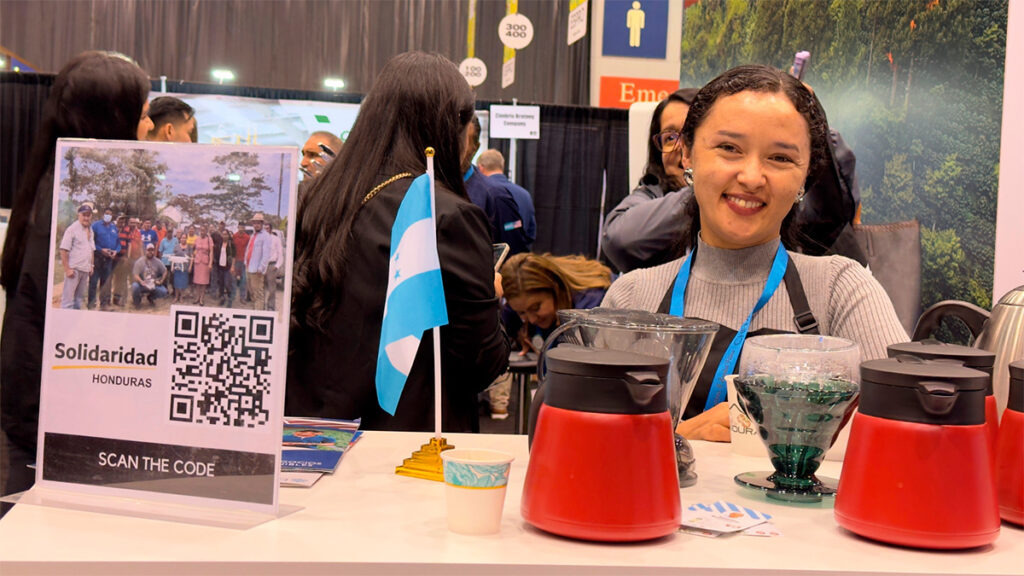
This traceability model allows smallholders to know that they are receiving a fair price for their coffee beans, and lets coffee buyers know that they are receiving high-quality beans. At the same time, consumers can be certain of their product’s authenticity, while also learning about the history of the smallholders and the origin of the coffee.
Solidaridad’s work also involved the implementation of strategies to competitively position women and young coffee smallholders in Honduras in the international market, this included adding value through traceability systems, non-deforestation measurement and product marketing.
Key industry alliances
Real change is achieved by working as a team. That is why Solidaridad has invested in impactful collaborations, such as the following:
- During the Te Van a Conocer Compa coffee fair, our goal was not only to connect smallholders with international buyers, but also to establish cooperative relationships with potential partners with an interest in supporting fair and sustainable trade initiatives.
- Together with the Secretariat of Agriculture and Livestock of Honduras, JDE Peet’s, Enveritas Inc., the Honduran Coffee Institute (IHCAFE), the Secretariat of Economic Development, the Association of Coffee Exporters of Honduras, and the Union of Coffee Exporters of Honduras, an agreement was signed that seeks to ensure coffee exports to the European Union in 2025, while laying the groundwork for compliance with the new Zero Deforestation regulation.
- Together with the Secretariat of Agriculture and Livestock, AMUCAFE, IHCAFE, SWISSCONTACT, SOCODEVI, the Government of Canada, and the Municipality of El Paraíso, we have recently been able to build acceptance of the gender policy in Honduras.
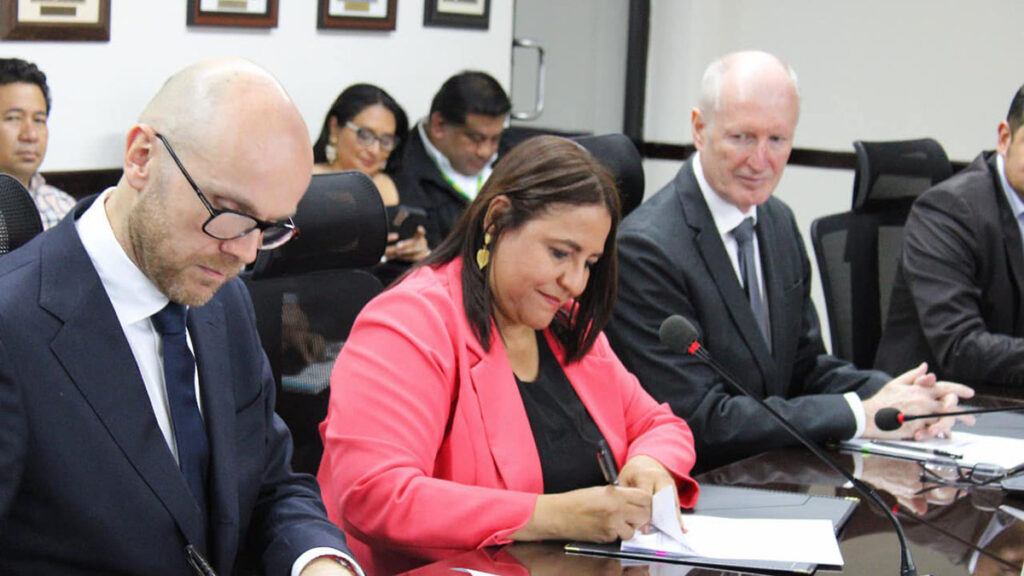
Solidaridad is committed to its ongoing support for smallholders as they work to improve their livelihoods, increase their incomes, and produce more sustainably. If you would like to learn more about how you can join our initiatives, please do not hesitate to contact us through Vilma Bautista, Coffee Manager Central America at vilma.bautista@solidaridadnetwork.org.

